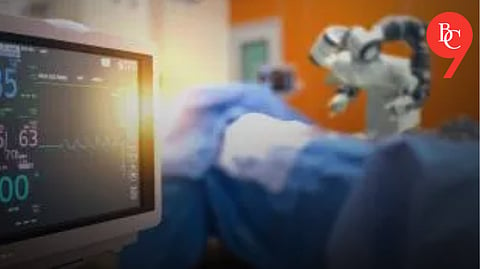

Researchers have developed groundbreaking tiny robots capable of detecting and treating bowel cancer, offering a non-invasive and highly precise alternative to traditional diagnostic and therapeutic methods. These innovations, spearheaded by teams from the University of Leeds and other global institutions, aim to transform cancer care by enabling early detection, real-time diagnostics, and targeted treatment.
Engineers from the University of Leeds have designed a tiny magnetic robot, roughly the size of a penny, capable of navigating the gastrointestinal tract. Using an innovative 3D shape called the oloid, the robot can roll smoothly inside the gut, capturing high-resolution 3D ultrasound images. This allows for virtual biopsies, eliminating the need for invasive tissue sampling.
The robot is controlled externally via a magnetic joystick or autonomously, providing real-time diagnostic data. It has already proven effective in artificial gut models and pig intestines, with human trials expected by 2026.
Researchers at Caltech have developed 3D-printed microrobots, measuring just 30 microns in diameter (thinner than a human hair). These robots can transition between solid and liquid states, survive stomach acid, and deliver drugs directly to tumors with precision. Initial trials in mice demonstrated their ability to reduce bladder tumor size.
The EU-supported OMEGA project has created micro robots equipped with sensors that detect abnormalities in gut tissues by analyzing changes in their vibration patterns. These robots can identify lesions as small as colonic polyps, providing early warnings of potential malignancies.
These robots eliminate the need for traditional endoscopies or colonoscopies, which are often uncomfortable and invasive.
Virtual biopsies offer immediate diagnostic data, reducing delays between detection and treatment.
Microrobots can deliver therapeutic agents directly to tumors, minimising side effects associated with systemic treatments.
By identifying abnormalities at their earliest stages, these technologies could significantly improve survival rates for bowel cancer patients.
These robotic advancements are expected to revolutionise cancer care by making diagnostics more accessible, affordable, and accurate. With ongoing research and upcoming human trials, these technologies hold the potential to save thousands of lives annually while reducing healthcare costs.
